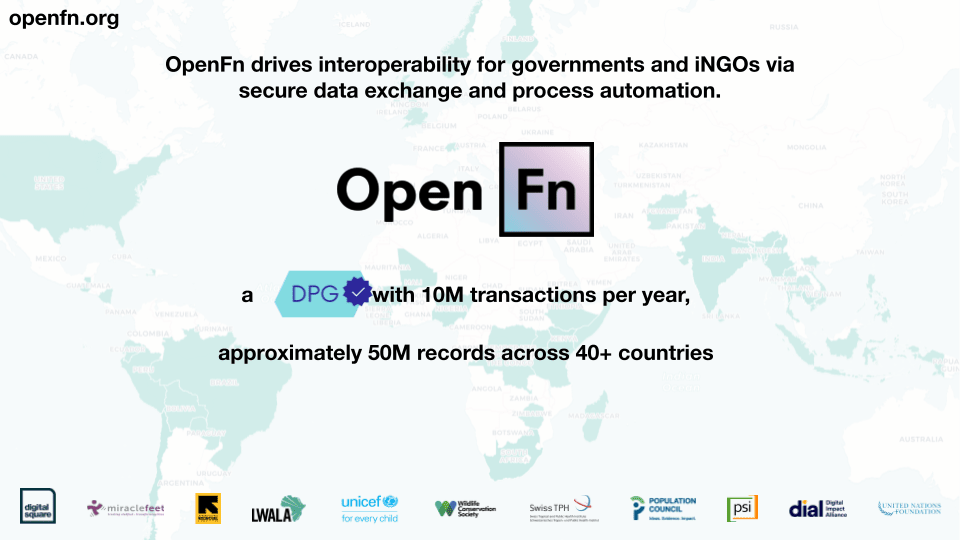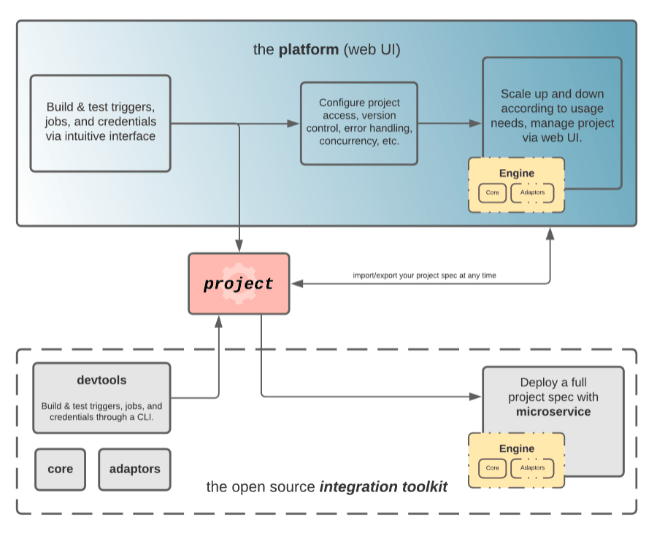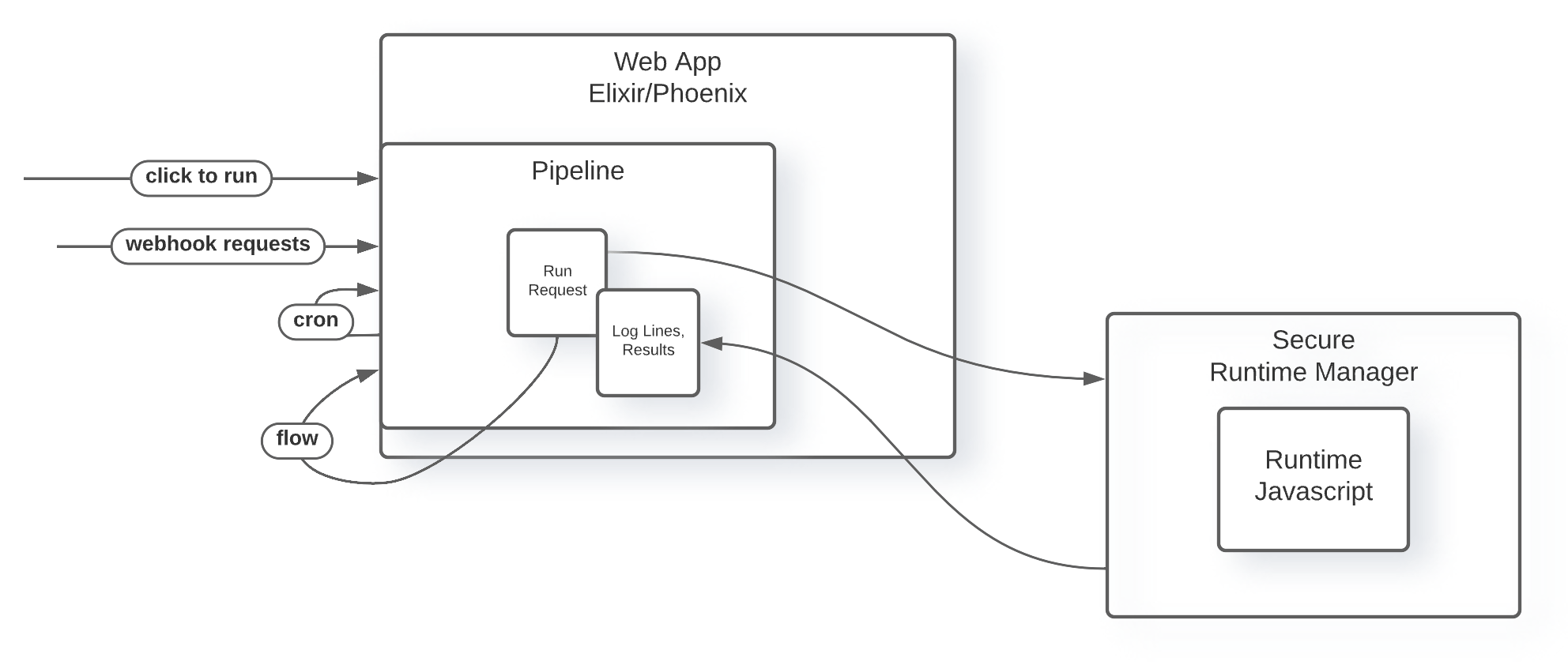The Integration Toolkit
This page is from the v1 legacy docs. Visit the "v2" docs to see an updated overview on the OpenFn Integration Toolkit and its products.
OpenFn's free and open-source Integration Toolkit gives governments and NGOs around the world more flexibility and freedom to chose how they achieve success in integration and interoperability projects. The Toolkit is both a recognized Digital Public Good ("DPG") and a Digital Square Global Good.

The Toolkit provides a suite of software tools and documentation to help users design, build, and automate integrations.
About the Toolkit
At the heart of the toolkit is the project—a set of jobs, triggers, and
credentials which allow organizations to flexibly define workflows and
integrations across their systems.
Projects can be ported from the platform to microservice (the main
deployment pathway for the Integration Toolkit) and back again (see below) but
to really understand the toolkit you've got to first understand Open Function
Group and platform, the enterprise iPaaS.

Open Function Group has been building free and open source software (FOSS) for data integration projects in the health, humanitarian, and international development sectors since in 2014. Their software and services are now in use by governments, NGOs, and impact-first businesses in over 40 countries.
OFG's first integration platform was entirely FOSS, but they soon shifted to an "open-core" (think GitLab) in order to sustain their impact-focused integration work. Their main hosted offering, the OpenFn "platform", is proprietary but makes extensive use of the open-source integration toolkit; in fact, the "platform" may be thought of as an enterprise/hosted layer running on-top of the basic, open-source building blocks provided by the Integration Toolkit.
Why OFG is driving the development of the Integration Toolkit
Our mission is to make health & humanitarian interventions more efficient & effective, and we see investment in the integration toolkit as strategic.
We'll strive to preserve the integration toolkit as a healthy and bona fide open source project and sustains its operations through business activities related to the toolkit and their other proprietary and/or service offerings until it grows legs of its own and is taken over by the broader community.
We have designed the tools in the toolkit to be useful as standalone pieces of software and as modules, used by other applications. Because a substantial portion of OFG's revenue comes from contracts related to the platform, and because the platform relies on OpenFn/core, OpenFn/engine, and the OpenFn adaptors, we hope to ensure that OFG will always be incentivized to continue their investment in the integration toolkit.
In other words, we're attempting to ensure that as OFG grows, they will continue enhancing the open source integration toolkit regardless of whether or not additional funders and/or stakeholders contribute to the project.
What's in the Integration Toolkit
Separate from "the platform", the integration toolkit is the suite of applications and modules provided by OFG and the community which enable data integration, interoperability, and automation solutions via OpenFn-compliant jobs, triggers, and credentials. The key components of the toolkit are:
- OpenFn/docs
- OpenFn/core
- OpenFn/engine
- OpenFn/microservice
- OpenFn/devtools
- the OpenFn adaptors
- OpenFn/lightning (coming soon...)
Please note that OpenFn/microservice and OpenFn/devtools are being deprecated and replaced by OpenFn/Lightning, When lighting is released.
Lightning, coming soon!
Lightning is an upcoming addition to the Integration Toolkit. It is a fully open source workflow automation platform designed for governments and NGOs who need a flexible solution to integrate and connect any system.
You can read all about it here!
Architecture for implementation

Open Source Steering Committee (OSSC)
We've also initiated an Open Source Steering Committee (OSSC) to represent the OpenFn community of end users and implementers. It reviews and gives feedback on major roadmap decisions, new designs, specifications, features, and protocol changes.
The OSSC's membership and decision making process are defined in the OSSC's internal governance policy if if you're interested in joining, we'd love to hear from you!